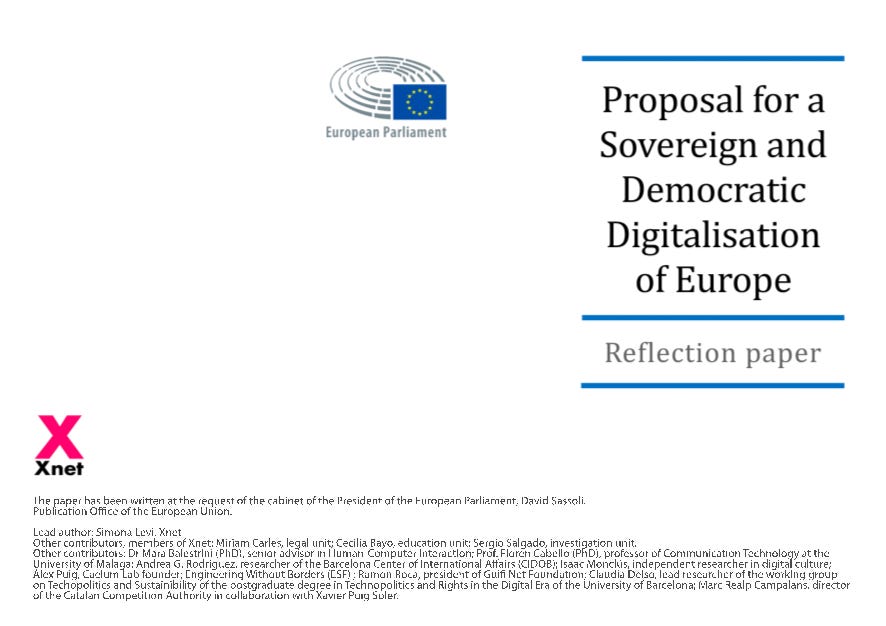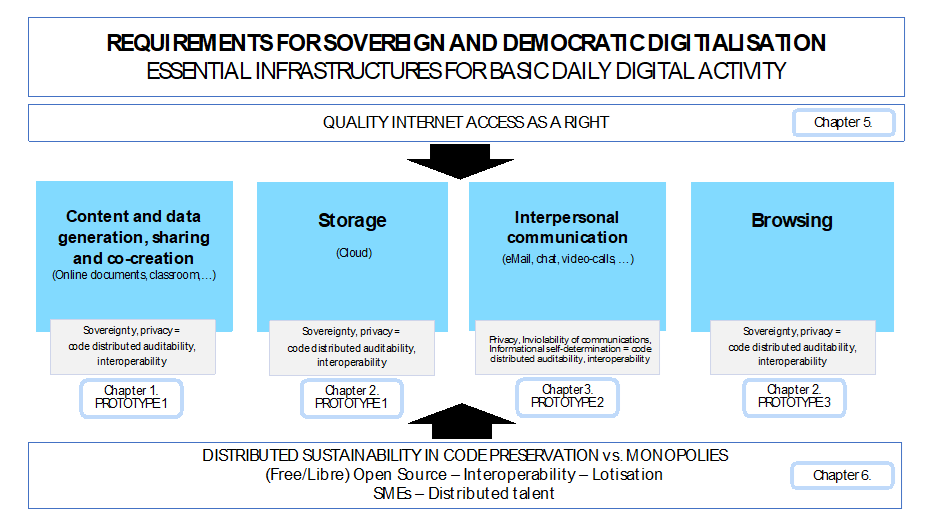Don’t blame the people, blame the power
Simona Levi presented a proposal for a Sovereign and Democratic Digitalisation of Europe
Upon encountering Simona Levi through the Parti network, it became evident that we shared many passions: like a technopolitical perspective in the digital age and the respect for fundamental rights.
With this shared understanding, we decided to design this new dancefloor call to have Simona present the recently prepared report for the European Parliament, stemming from concrete projects in Barcelona. Here, you'll find a dedicated page for the report.
As always, we organize a dancefloor call when we believe the content and rhythm brought by the DJ can be beneficial to the community around us.
During the call with Simona, we aimed to address the question: what do we mean by democratic and sovereign digitalisation?
We clarified that democratic digitalization should entail a digital transition based on human rights, by design and by default. Sovereign digitalization signifies a digitalization where one can control the use and destiny of created content and generated data.
In the report, drawing from the tangible experience in Barcelona, the current state and criticalities regarding how digitalization is unfolding in Europe are analyzed, particularly concerning essential public services (education, healthcare, transportation, etc.).
The internet was born free, neutral, and sovereign. We recalled that the danger now doesn't stem from the internet itself but rather from its occupation by a group of global private companies.
The digital transformation is now central to the European agenda, yet the digitalization of societies has been ongoing for half a century. The real question here isn't whether digitalization will occur but whether it will be democratic, inclusive, and respectful of fundamental rights, and therefore beneficial to all.
Simona reminded us that in the digitalization of public services, the public administration, by political choice, has treated the matter as if there were no alternative (without considering fundamental rights).
We must remember that in our daily lives, the services we predominantly use (content generation, storage, interpersonal communication, and browsing) are neither democratic nor sovereign.
The lesson is that digitalization must not come with the collateral effect of compressing fundamental rights. The only way to be certain of using democratic tools is to be in control of the data and to have the possibility to audit the tools to verify what they are executing (thus, the source code must be available for this purpose).
Digitalization through big tech actors also sends the wrong signal to the market: digitalization cannot occur by sacrificing the role of small and medium-sized enterprises. Data on the size of public procurement contracts confirm that excessively large contracts favor increasingly large private companies that do not favor free software solutions, thereby excluding small and medium-sized enterprises that invest in democratic and sovereign technical solutions from the market.
The report responds to the analyzed problems with practical solutions. On the subject of education, Simona presented us with an example of a project developed with the municipality of Barcelona: a pilot of democratic and sovereign free software. Just as was done with education, we must also experiment with other essential public services. We can't wait!
The proposal is to persuade public administrations to invest in the development of European code for essential public services.
During and after the call, the debate continued, and a unit within Parti Collective dedicated to digital commons was established, which will be a key theme with upcoming events on the topic.





